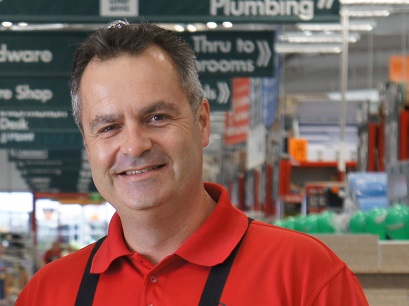
From busting company myths via video to creating a sense of community in the business and empowering all staff to become leaders, here are six valuable lessons Bunnings CEO Mike Schneider recently shared at an event run by Facebook Workplace in Sydney.
1. Create a community
“At the end of the day, we don’t for a second underestimate the social importance of being a business and creating jobs. We have a big team of people going home every week and putting food on the table for their families or paying for education or sport or doing things that make them happy in their lives and they need to come to work and feel rgR they’re wanted and that they belong.
I think Workplace provides that so that people feel safe and supported in their development and by being a part of a community. These are things that can really help. If you recognise those things, the proof is in the pudding – people will stay and build great careers or second careers in our organisation and we feel lucky to have people in our team who choose to do that.”
2. Keep it small
“What I like about our workplace culture is that whether you’re in a store, the support office or a distribution centre, you’re part of a team. We work hard to structure the organisation around smaller teams, so we never have big, bumbling departments. Everyone is built into nice, small areas, which stems right up to the leadership team too.”
3. Communication is key
“We spend a lot of time in our stores. We do structured and unstructured store visits, we take leaders on study tours and we bring them together on conferences and meetings. Then we have tools like Facebook’s Workplace that let us communicate in a digital way with team members to drive that message out.
Our stores have daily meetings, various communication forums and we have the same things in our support centres, so our team know why we’re doing what we’re doing.”
4. Empower your staff to become leaders
“We see everyone in our business as a leader, not just the people who have a formal leadership title, because we want them to provide expert advice to our customers. There’s a need for them to be authorities in various product or service areas, so they can provide advice.
It’s not like customers are coming in and seeing whether an outfit looks good for Saturday night. It’s ‘If I do something to my home, will it be better, will it be safer?’ So there’s an importance to be placed on confidence in strong product knowledge.
And then we’ve got a number of different pathways for people who want to build leadership roles and to build that structured leadership from supervisory roles at a real grassroots level right through to senior leadership roles.”
5. Use technology to keep it real with staff
“We’ve got 23,000 of our team on Facebook Workplace and we spend a lot of time as retail operators in our stores, DCs, trade centres, on the road with buyers and overseas with suppliers and that human interaction is important. What Workplace has done is bring that a lot closer and make it quite real.
We have a video program called Mythbusters. I think all big organisations have those watercooler conversations where the real facts get discussed and often things will bubble up, like the use of mobile phones in the store,s what colour shoes the team need to wear.
They’re often the little things, but they’re important to individual team members and we take to the cameras and pose a few questions and say what we’d do in this or that scenario and we break those down.
If staff hear it from the leadership team, then that helps support leaders in store underscore things that are important, or if they’re not 100% sure themselves, they say, ‘Hey, this is what the organisation is happy to have happen’ and they get on with it.”
6. Create a culture around authenticity
“It’s about what you want to be as a person and it’s about being real. It’s how I want to I want to live my life and how I see the business operating. One is being honest. We have leadership principles in our business around integrity and respect. Honesty is about doing what you say you’ll do, being straightforward with people – good news, bad news, it has to be delivered in the right way, but be honest in all that you do.
There’s a real humility in Bunnings and I think that stands through, not just in the organisation, but the leaders that build successful careers there. They’re very down-to-earth people, we don’t stand on ceremony. There’s always going to be hierarchy, bureaucracy and politics in big organisations, but compared to other organisations I’ve worked in, it’s a very free-flowing, down-to-earth, real organisation and humility is a really important part.”






